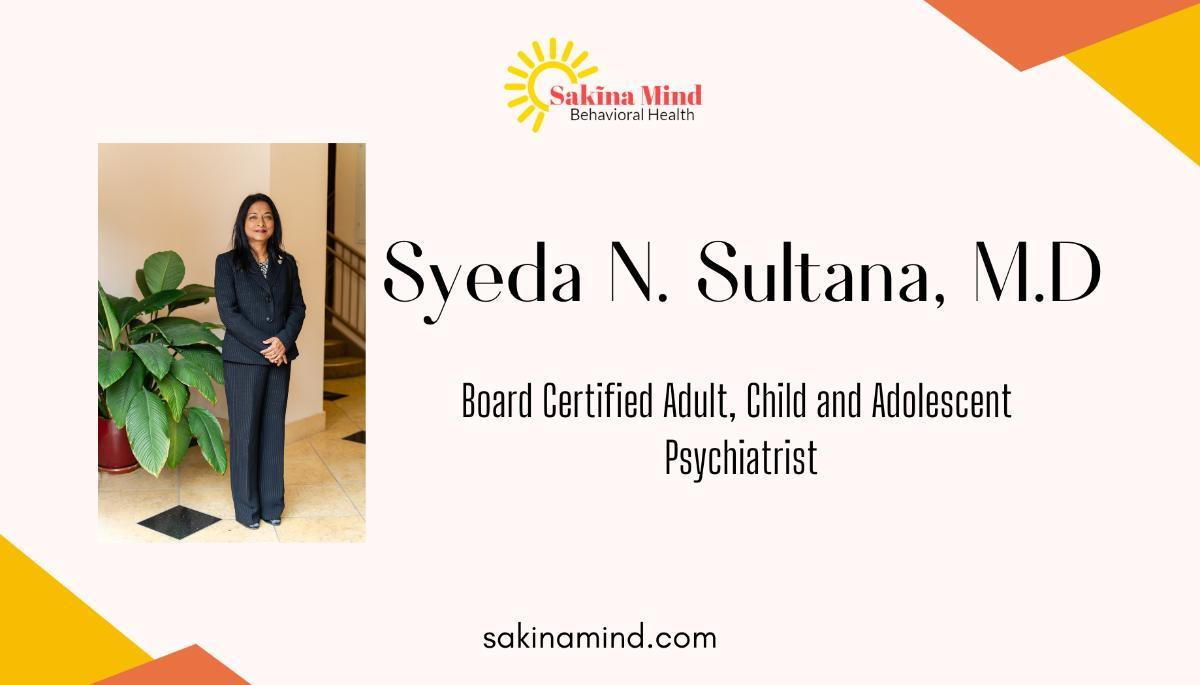
- posted: Jun. 27, 2024
Loss is an inevitable part of life. Whether it's the death of a loved one, the end of a relationship, or the loss of a job, grief can manifest in various forms and impact us deeply. As a psychiatrist, I've witnessed firsthand the challenges individuals face when navigating through the turbulent waters of loss. In this blog, I aim to provide insight into coping mechanisms and strategies to help you navigate through grief and emerge stronger on the other side.
Grief is a natural response to loss, and it can manifest physically, emotionally, and psychologically. It's essential to recognize that there is no right or wrong way to grieve, and everyone experiences it differently. Some common reactions to grief include sadness, anger, guilt, shock, and even physical symptoms like fatigue and loss of appetite. Understanding these reactions can help validate your feelings and provide a sense of normalcy during this challenging time.
While grief may feel overwhelming, there are several coping strategies that can help you navigate through it:
Allow yourself to feel: It's okay to experience a wide range of emotions during this time. Allow yourself to feel whatever comes up without judgment or criticism.
Seek support: Lean on friends, family, or a support group for emotional support. Talking about your feelings can provide comfort and validation.
Take care of yourself: Engage in self-care activities that nourish your mind, body, and soul. This could include exercise, meditation, journaling, or spending time in nature.
Establish routines: Maintaining a sense of structure and routine can provide stability during times of upheaval. Try to stick to a regular schedule as much as possible.
Seek professional help: If you're struggling to cope with your loss, don't hesitate to seek help from a mental health professional. Therapy can provide you with tools and support to navigate through your grief effectively.
If you're struggling to cope with loss, remember that you're not alone. Reach out for support from friends, family, or a mental health professional. By allowing yourself to feel, seeking support, taking care of yourself, establishing routines, and seeking professional help when needed, you can navigate through your grief and emerge stronger on the other side. Remember, healing takes time, so be patient and gentle with yourself throughout the process. You deserve love, support, and compassion as you journey through your grief.
[2869 Wilshire Dr ST 203, Orlando, FL 32835, (407)903-9696, [email protected], sakinamind.com]
Best Regards,
Dr. Syeda N. Sultana, M.D., and Team.

- posted: Jun. 27, 2024
Loss is an inevitable part of life. Whether it's the death of a loved one, the end of a relationship, or the loss of a job, grief can manifest in various forms and impact us deeply. As a psychiatrist, I've witnessed firsthand the challenges individuals face when navigating through the turbulent waters of loss. In this blog, I aim to provide insight into coping mechanisms and strategies to help you navigate through grief and emerge stronger on the other side.
Grief is a natural response to loss, and it can manifest physically, emotionally, and psychologically. It's essential to recognize that there is no right or wrong way to grieve, and everyone experiences it differently. Some common reactions to grief include sadness, anger, guilt, shock, and even physical symptoms like fatigue and loss of appetite. Understanding these reactions can help validate your feelings and provide a sense of normalcy during this challenging time.
While grief may feel overwhelming, there are several coping strategies that can help you navigate through it:
Allow yourself to feel: It's okay to experience a wide range of emotions during this time. Allow yourself to feel whatever comes up without judgment or criticism.
Seek support: Lean on friends, family, or a support group for emotional support. Talking about your feelings can provide comfort and validation.
Take care of yourself: Engage in self-care activities that nourish your mind, body, and soul. This could include exercise, meditation, journaling, or spending time in nature.
Establish routines: Maintaining a sense of structure and routine can provide stability during times of upheaval. Try to stick to a regular schedule as much as possible.
Seek professional help: If you're struggling to cope with your loss, don't hesitate to seek help from a mental health professional. Therapy can provide you with tools and support to navigate through your grief effectively.
If you're struggling to cope with loss, remember that you're not alone. Reach out for support from friends, family, or a mental health professional. By allowing yourself to feel, seeking support, taking care of yourself, establishing routines, and seeking professional help when needed, you can navigate through your grief and emerge stronger on the other side. Remember, healing takes time, so be patient and gentle with yourself throughout the process. You deserve love, support, and compassion as you journey through your grief.
[2869 Wilshire Dr ST 203, Orlando, FL 32835, (407)903-9696, [email protected], sakinamind.com]
Best Regards,
Dr. Syeda N. Sultana, M.D., and Team.
